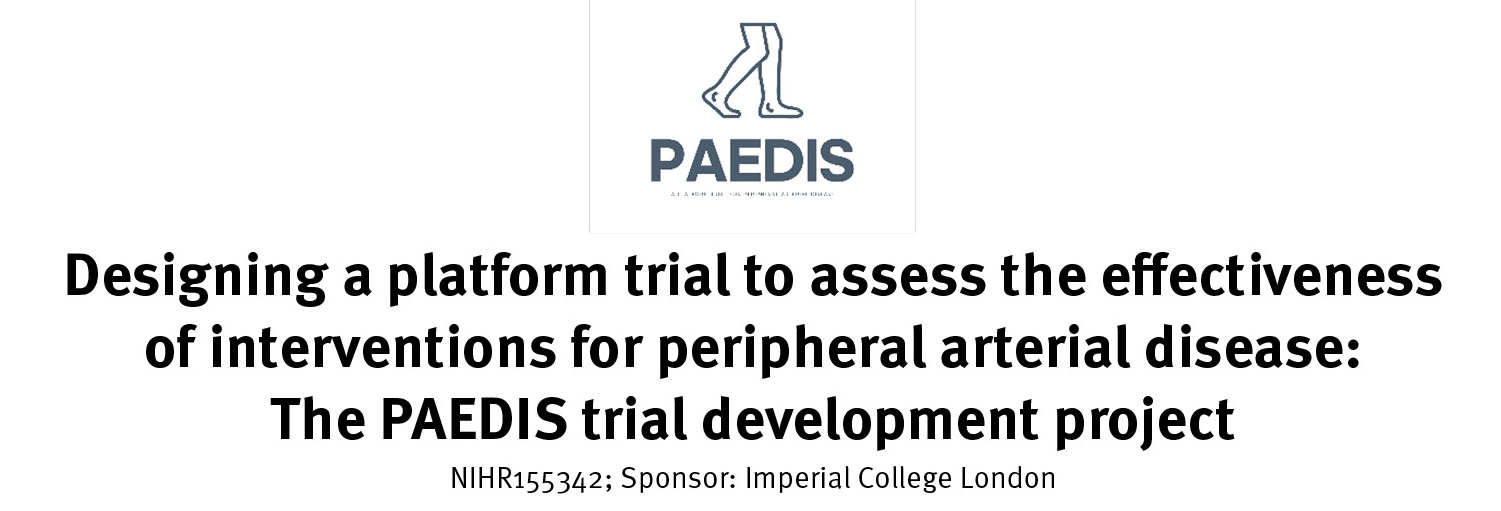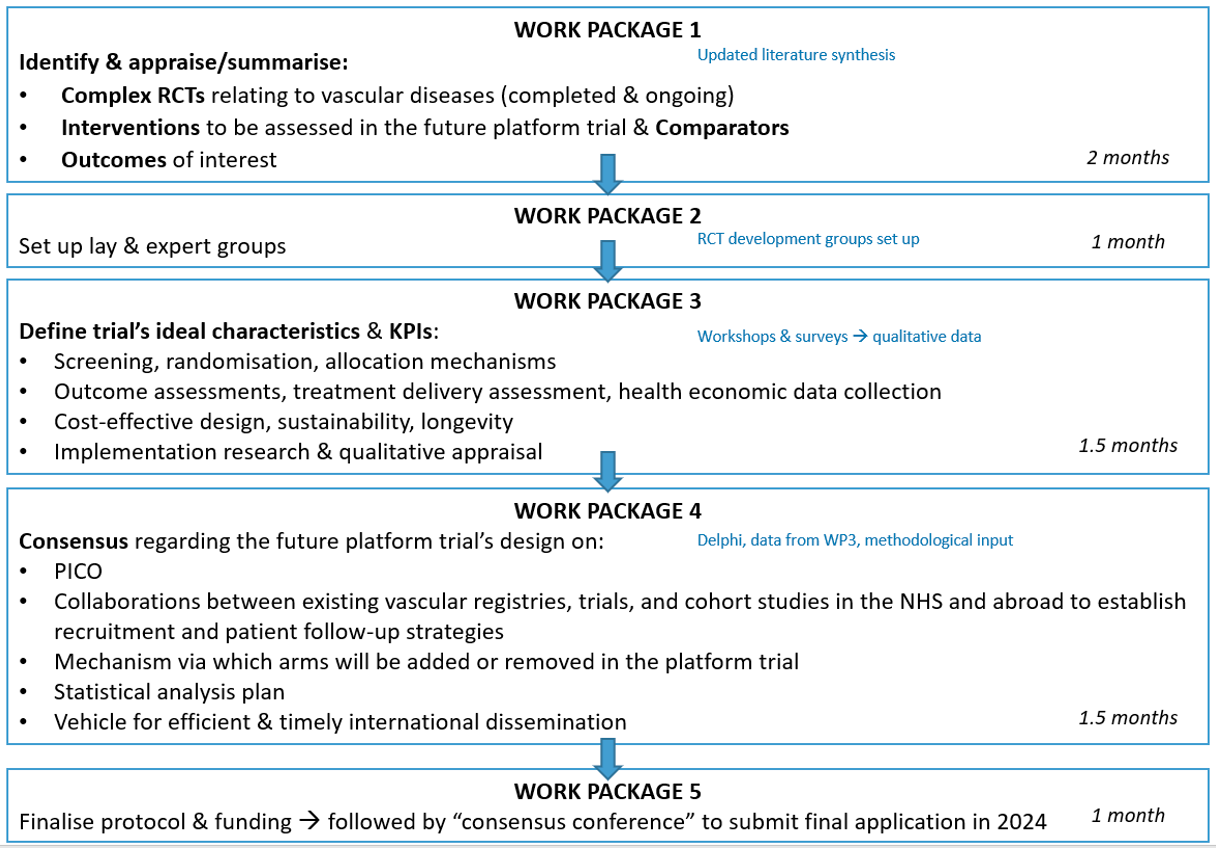
For enquires, please contact:
Section of Vascular Surgery
Room 14, 4th Floor East Wing
Charing Cross Hospital
Fulham Palace Road
London W6 8RF
Tel: 0203 311 5204
Lower limb peripheral arterial disease (PAD) affects 20% of people over 55. It is the main cause of leg amputations. PAD affects socioeconomically deprived, multi-morbid and frail individuals. Often, people with PAD develop symptoms and require revascularisation. All patients with PAD also need risk-factor modification medications to reduce cardiovascular risk and limit PAD-progression. Endovascular revascularisations for PAD are the most common vascular procedures globally. Several new PAD endovascular technologies have been developed in recent years. Their clinical and cost-effectiveness is, however, unknown, due to the continuous rapid introduction of such technologies. There are also several limitations in the evidence for PAD medications, noted in PAD guidelines. This area has been identified as a key priority in a James Lind Alliance (JLA) Priority Setting Partnership (PSP). Further, patients with PAD who co-developed this application were concerned about the lack of evidence to support decision-making when offered treatment. Overall, the lack of randomised evidence assessing the effectiveness and long-term results of PAD treatments is leading to more deaths, amputations, increased costs, and clinical uncertainty. We plan to design a large platform trial assessing new PAD treatments/technologies to address this issue. This trial will act as a model project to develop future research in other vascular areas.
Question: What is the optimal design for a large-scale platform randomised controlled trial (RCT) assessing the clinical and cost-effectiveness of peripheral arterial disease (PAD) treatments?
Study team
Professor Athanasios Saratzis
/prod01/channel_3/media/images/people-list/Athanasios-Saratzis.png)
Professor Athanasios Saratzis
Principal Investigator
Professor Alun Davies
/prod01/channel_3/media/migration/faculty-of-medicine/Alun-Davies--tojpeg_1583841582959_x4.jpg)
Professor Alun Davies
Joint Principal Investigator
Ms Rebecca Lawton
/prod01/channel_3/media/migration/faculty-of-medicine/Rebecca-Lawton--tojpeg_1583841641281_x4.jpg)
Ms Rebecca Lawton
Clinical Trial Manager

This study is funded by the National Institute for Health Research (NIHR) [Health Technology Assessment (project reference NIHR155342)/HTA]. The views expressed are those of the author(s) and not necessarily those of the NIHR or the Department of Health and Social Care.

